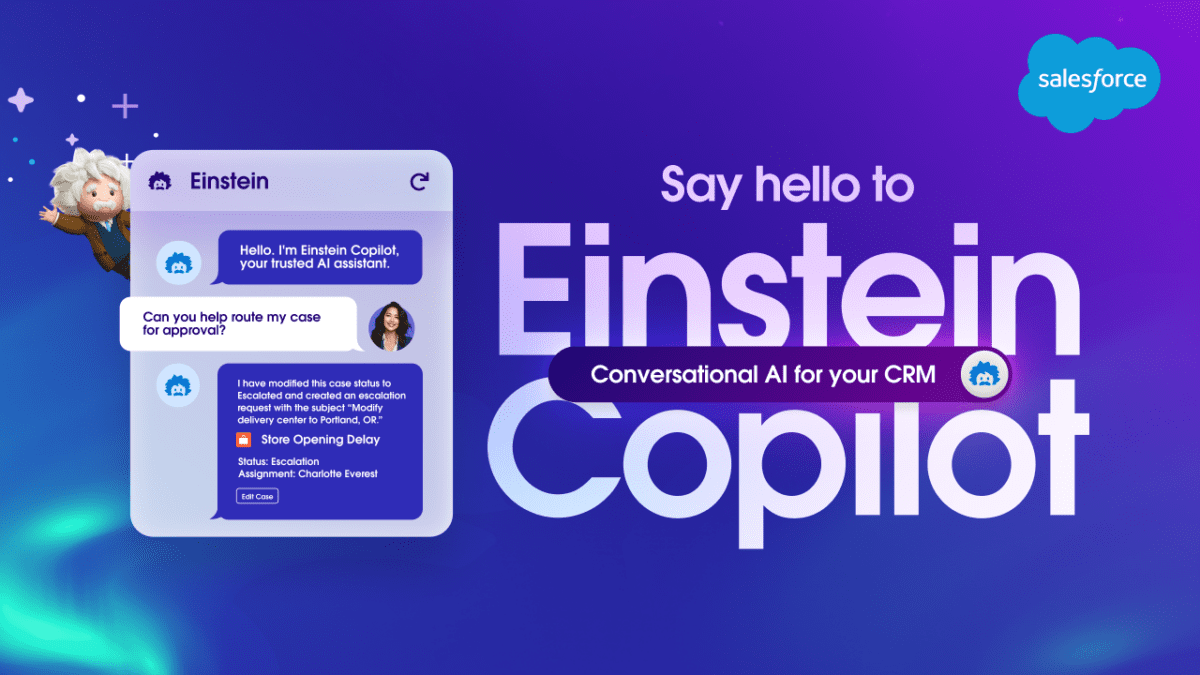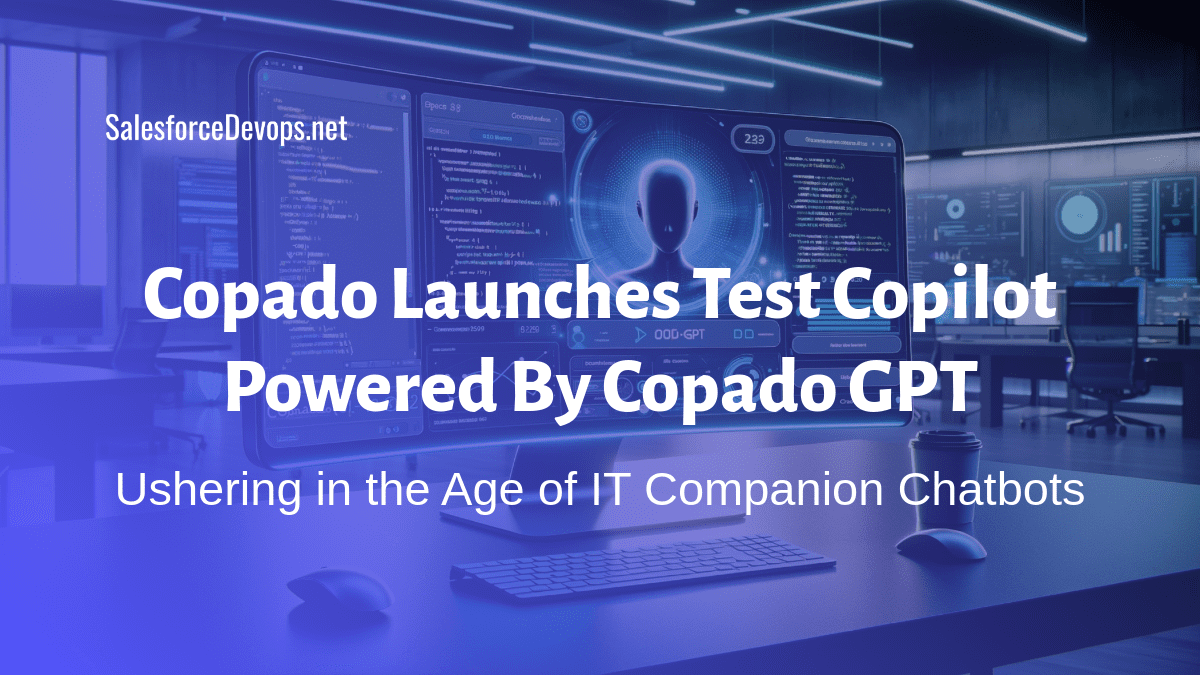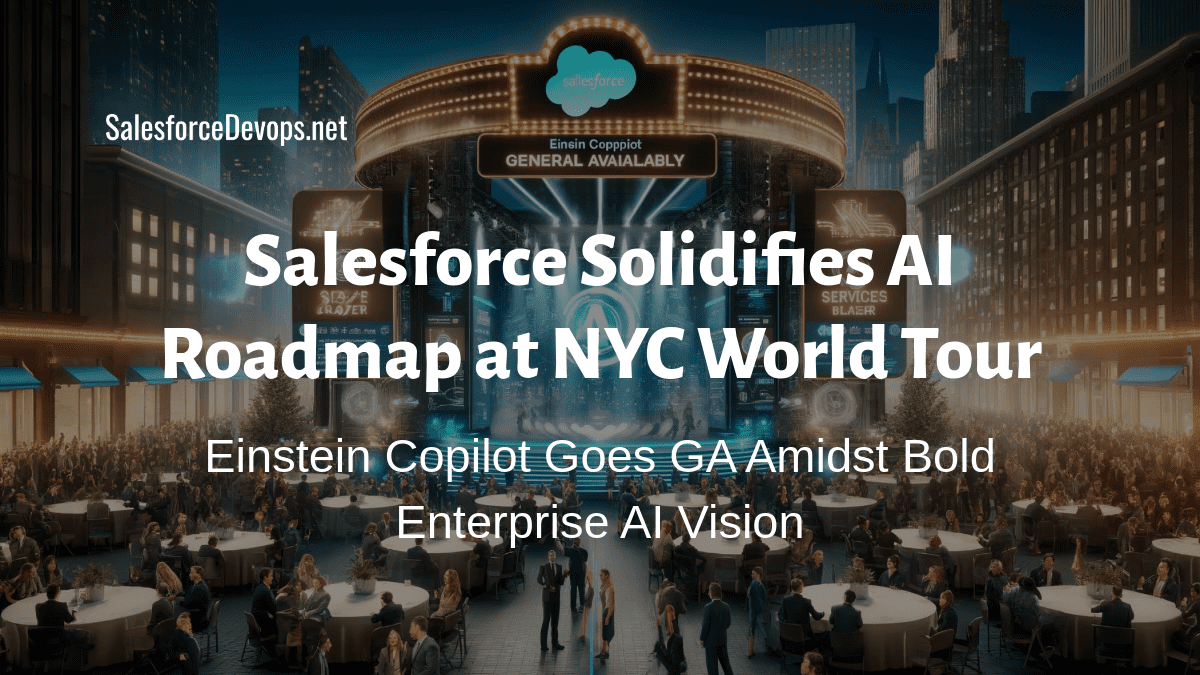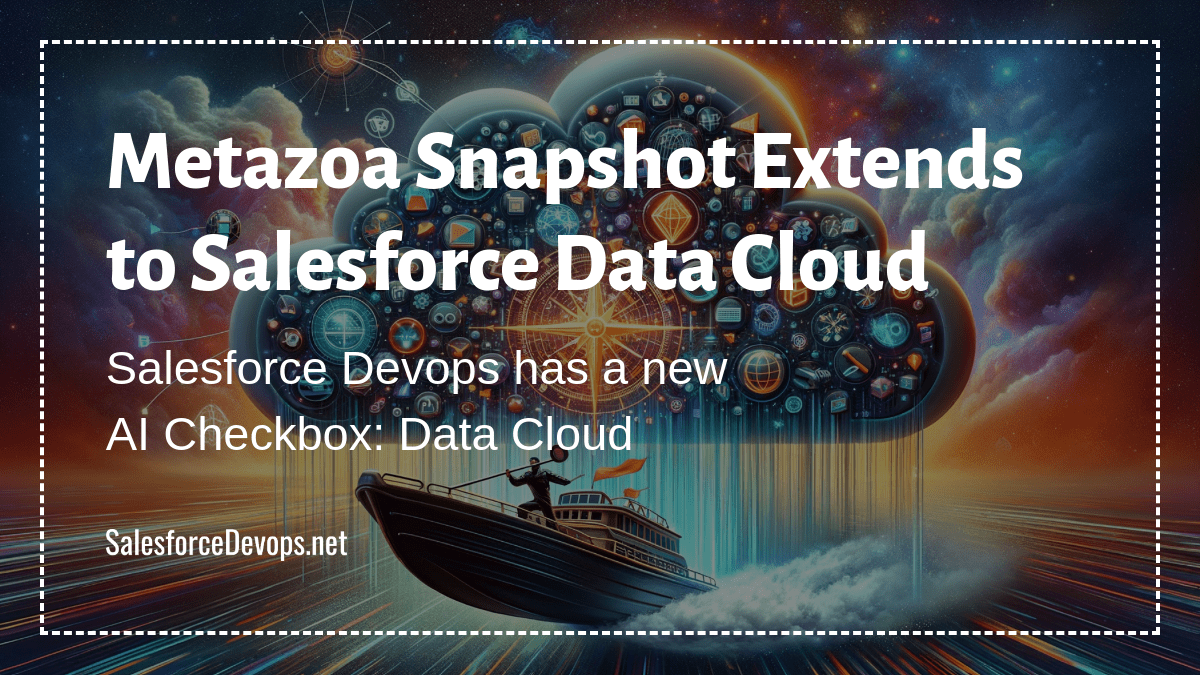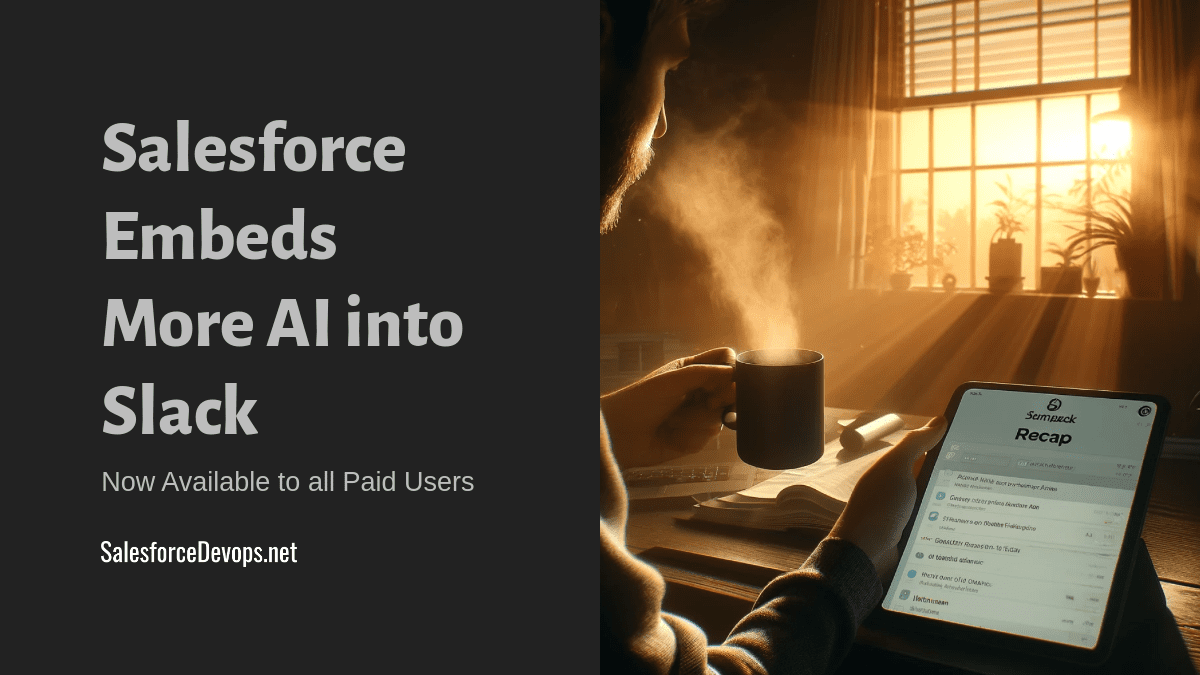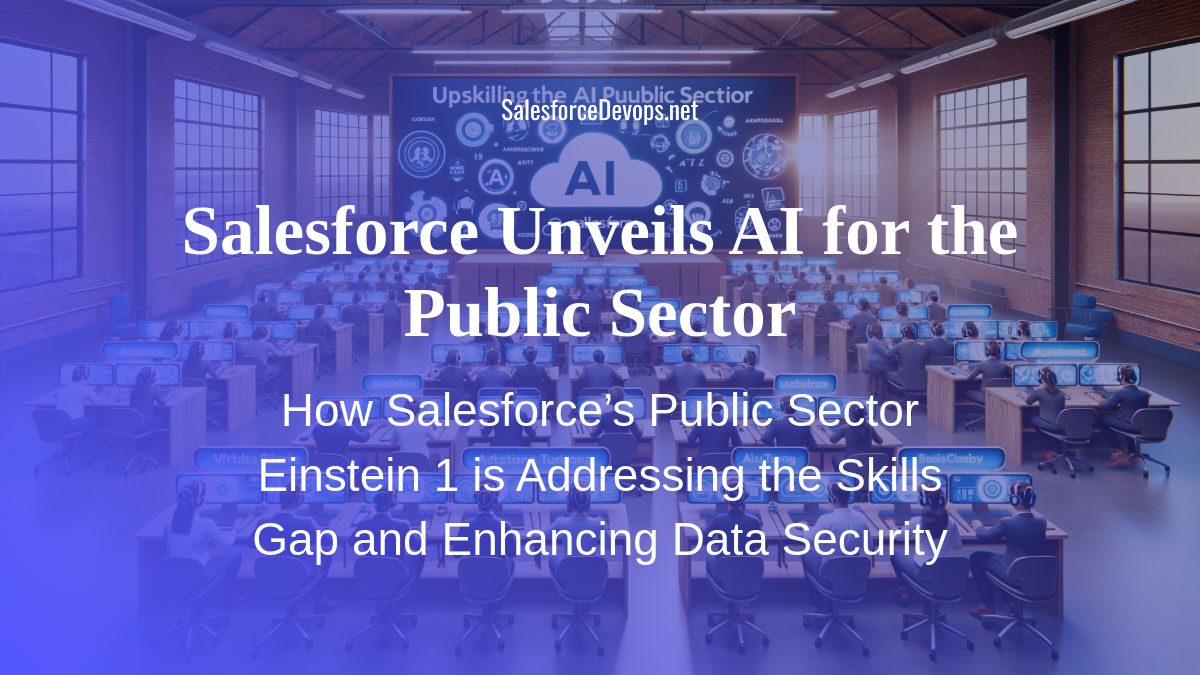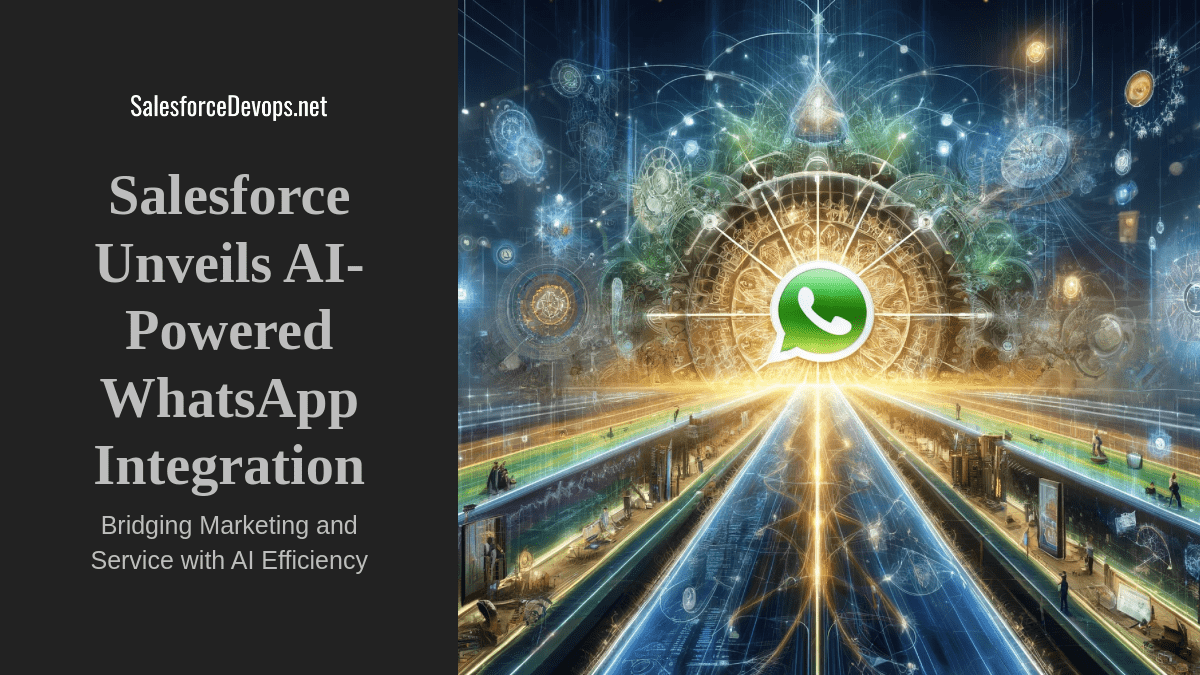Salesforce Ships Public Beta of Einstein Copilot Amid High AI Expectations
Nearly six months after demonstrating Einstein Copilot at Dreamforce 2023, Salesforce today announced the public beta launch. The conversational AI productivity tool aims to help sales, service, marketing, and other professionals get work done faster by interacting with Salesforce org functions through natural language.
“Einstein Copilot is the most relevant, accurate AI assistant on the market – differentiated from any other by the trusted business data that powers every AI action, plan, and response. With Einstein Copilot, we’re going from clicks and code to conversations, providing our customers with the most intuitive and impactful enterprise-grade conversational AI,” said Clara Shih, CEO of Salesforce AI.
Einstein Copilot launches in public beta today. Any Unlimited Edition Salesforce customer can enable it directly in their org and immediately start testing out its conversational AI and automation abilities across common CRM workflows. Activating Copilot also gives you access to Einstein Studio which includes Prompt Builder and Skills Builder.
This beta release marks a crucial milestone for Salesforce as demand for – and scrutiny of – its burgeoning AI portfolio heightens. Can Copilot deliver meaningful daily value amid inflated expectations? Let’s analyze what’s released in terms of Salesforce’s AI promises.
Table of contents
What is Einstein Copilot?
Einstein Copilot is a new, customizable, generative AI-powered conversational assistant for any application, employee, and department.
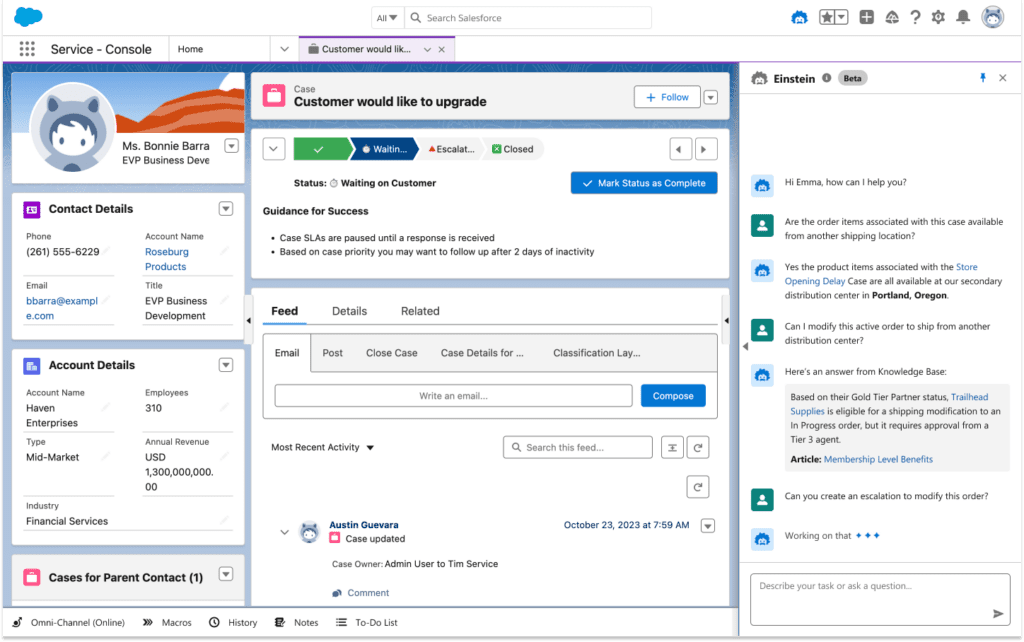
It allows users to ask questions and make requests using natural language within their regular workflows. It then provides trusted and actionable responses grounded in company data from Salesforce’s Customer 360 Data Cloud.
Einstein Copilot comes equipped with over 50 out-of-the-box actions tailored for sales, service, marketing, commerce, and IT teams. These enable it to complete routine business tasks like updating records, logging activity, routing cases, and more based on user prompts.
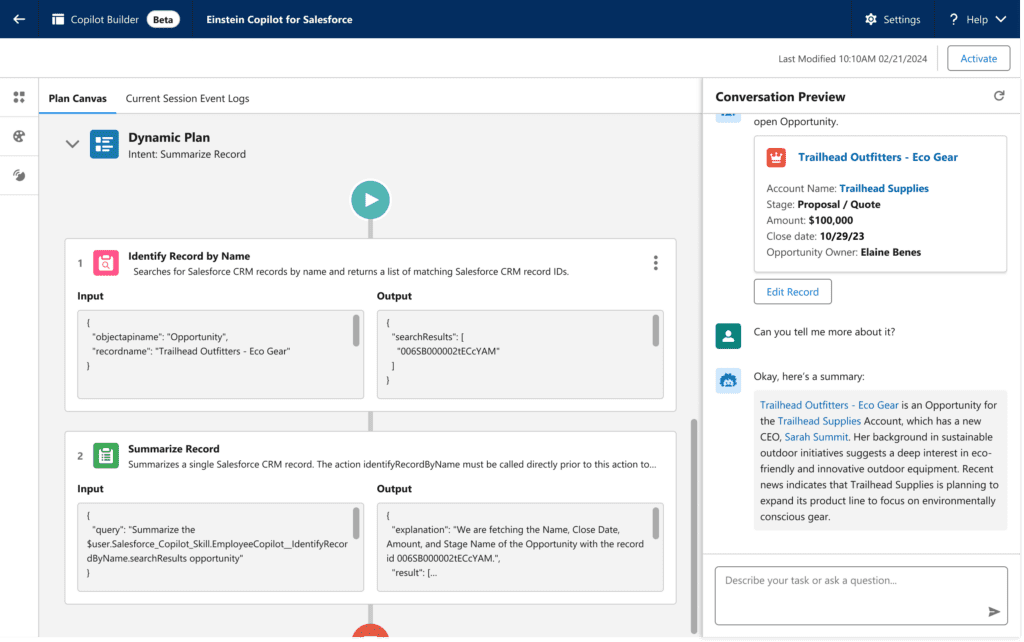
Its reasoning engine interprets a user’s intent, selects the most relevant actions to fulfill requests, then executes those actions directly within Salesforce systems on behalf of users. This allows it to handle multi-step processes through a single prompt.
Einstein Copilot can also be customized to support company-specific tasks through accompanying builder tools:
- Copilot Builder: Enables creating custom actions that can integrate with existing Salesforce extensions or external APIs
- Prompt Builder: Activates custom prompts in the flow of work
- Skill Builder: Create actions accessible to Copilot
- Model Builder: Leverages proprietary data within Einstein Copilot via custom AI models
Copilot is built on top of Salesforce’s Einstein AI platform, leveraging its data, AI, and trust layers to enable secure and intelligent CRM interactions personalized to each customer.
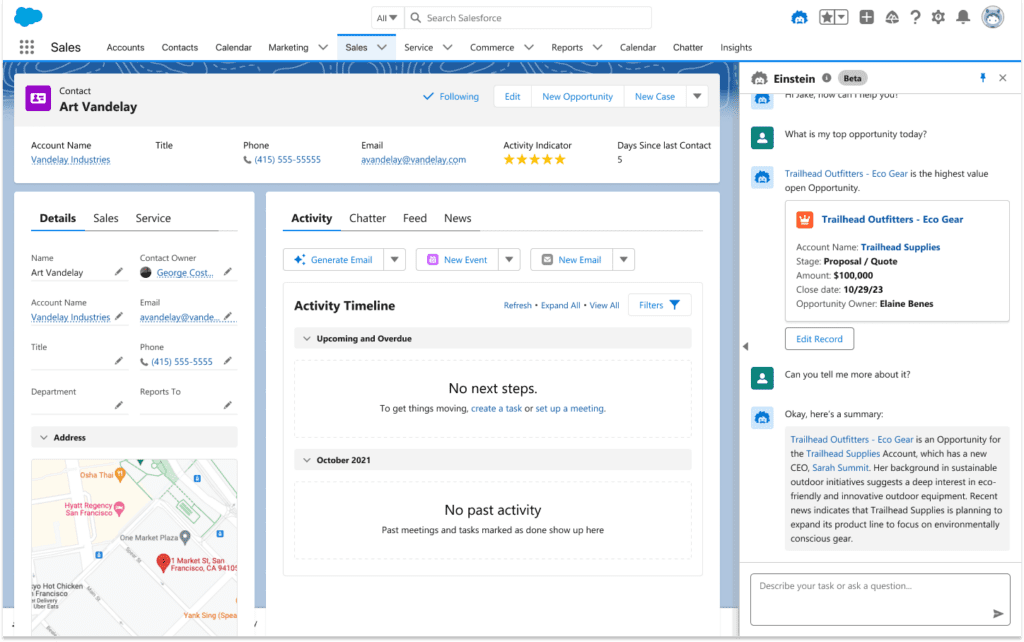
Revisiting the Dreamforce Promise
Copilot landed amid substantial hype at last September’s Dreamforce. Branded under the new Einstein 1 umbrella spanning data and analytics, Copilot underscored Salesforce’s ambition to lead enterprises into an AI-powered future.
The proposition was enticing – domain-specific insights serving professionals directly within workflows through trusted conversational interactions. Early successes like generating effective sales emails hinted at the possibilities.
Yet key specifics around platform readiness and go-to-market remained unclear following Dreamforce. How quickly could capabilities materialize and scale to customers globally? How would Salesforce guide partners and administrators through unavoidable complexities? And what about pricing?
Lingering questions have tempered AI enthusiasm in the Salesforce community.
Bridging Innovation and Implementation
With this beta release, Salesforce seeks to further bridge the gap between imagination and execution. Underlying Copilot are extensive upgrades to model governance, metadata integration, and trust safeguards. Now, with the availability of Einstein Studio Copilot Builder, Prompt Builder and Skill Builder, users can tailor the technology to specific needs.
“Einstein Copilot gives us this new capability to really tap into the full power of large language models to orchestrate work – understanding user requests, determining optimal steps, and automating processes through API calls,” said Jayesh Govindarajan, Senior VP of AI at Salesforce in an interview with SalesforceDevops.net.
“Where Copilot shines is its dual reasoning and action-taking abilities, conveniently embedded in employee workflows rather than a separate portal. That grounding in customer data and systems enables relevant, trusted interactions personalized to each business,” continued Govindarajan.
All this lays the foundation for the efficient AI journey Salesforce envisions. This begins with augmenting individual employees then progressing toward increasingly automated processes.
Data Cloud is Center Stage
Copilot composes responses directly shaped by customer information and histories. This is done by using Data Cloud to unify data spread across teams, systems, and third parties. Contextual grounding in real business data forms the cornerstone of relevant AI-enabled insights at scale.
That’s why the eyebrow-raising Gartner accolades designating Salesforce Data Cloud as “Leader” in Gartner’s inaugural Magic Quadrant for Customer Data Platforms is so notable. Gartner said that Salesforce’s new CDP platform provides a leading way for enterprises to integrate their existing data estates into AI workflows. This is a stunning development, which could move more large customers into Salesforce’s arms.
Manifesting Trust at Scale
The world is getting used to nondeterministic LLMs as computing platforms. But everyone also knows LLMs still misbehave. You need guardrails around generative AI. And it turns out that Salesforce’s existing metadata and security architecture has given it a leg up on deploying those guardrails.
Since Salesforce became the first to brand AI trusting technology, they have captured the attention of most industry and financial analysts. The Einstein Trust Layer is designed to address model risk assessments and output verifications. This lets Salesforce proactively address emerging algorithmic bias, privacy, and governance concerns associated with AI.
The Verdict: Headed in the Right Direction
Stepping back, Salesforce deserves credit for the vision articulated and roadmap conveyed at last year’s TrailblazerDX and Dreamforce targeting its AI ambitions. Copilot’s beta release makes tangible initial capabilities while Data Cloud endorsements appear to validate the strategy’s credibility.
Still, selling enterprises on AI’s value proposition at this emergent stage requires pivoting from individual productivity use cases toward quantifying and optimizing clear ROI for AI-enhanced enterprise apps. That likely necessitates hands-on consulting beyond convenient configurations or bolt-on sales.
Mastering change management also remains paramount over any slick AI demos. Helping administrators set appropriate guidelines while upskilling employees for hybrid human/AI collaboration could prove the ultimate determinant of customer success.
So, a verdict on Salesforce’s AI developments so far reveals a glass both half-full and half-empty. Signs of progress abound. And with expansive opportunity ahead it certainly is possible Salesforce will fulfill its potential, leading customers into an increasingly intelligent CRM future. For now, they seem to be headed in the right direction.
